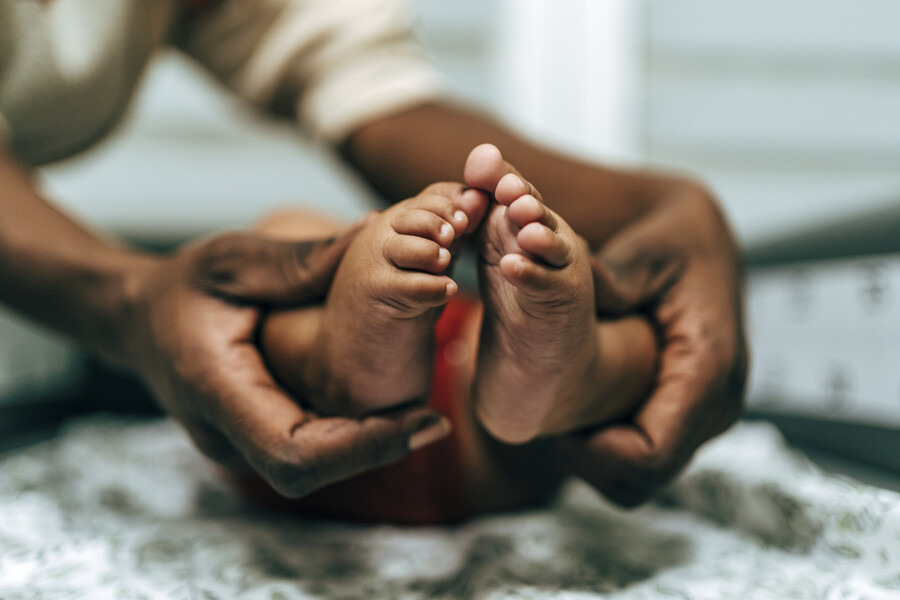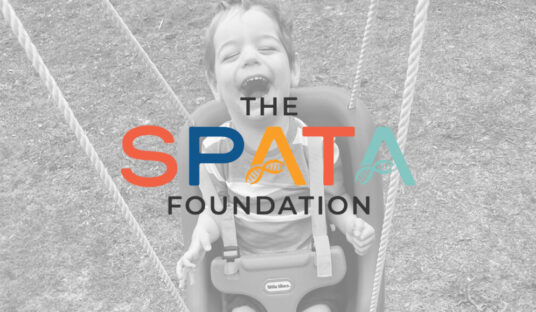
I consider myself to be a lifelong learner, and I’ve always been very passionate about health equity and the many opportunities to improve public health. While pursuing my Master’s degree at UNC Charlotte, I had the opportunity to learn more about Black maternal health, in particular, and developed a quantitative research proposal to try and determine what could be done to improve Black maternal health outcomes. For a semester, I also had the pleasure of interning with the District Office of Congresswoman Alma Adams, who is an advocate for Black maternal health. My time there helped me open my eyes to the challenges Black pregnant individuals and their families face when it comes to pregnancy.
I’ve now started my career in healthcare communications and I’m able to expand on this passion of mine through my work. Although I continue to see advancements in healthcare policies and education regarding maternal health, it’s evident we still have a long way to go to give Black pregnant individuals and their families the support and the care they need.
Earlier this month, an article came across my feed that left me shocked. As someone who lives in one of the wealthiest countries in the world, I’ve unfortunately seen the difference in treatment or healthcare based on socioeconomic status. But a recent article by The New York Times shows babies born to Black families are more likely to die compared to babies born to white families—regardless of income. While I knew that Black maternal mortality was an issue, I had no idea how drastic the impact was even on the wealthiest of Black families. The numbers are staggering: Black pregnant individuals are 3x more likely to die from a pregnancy-related cause, more likely than any other race; and infants born to Black parents are over 2x as likely to die relative to those born to white individuals.
Even though the Black maternal mortality statistics are alarming, there are ongoing efforts nationwide to help address this disparity and offer potential solutions:
- Alternative Care: Research suggests that alternative methods of prenatal care, which include the use of doulas, midwives, and group-based prenatal care are associated with improved health outcomes—given they consider the emotional, social, and psychosocial needs of pregnant people.
- Policy Change: In 2019, Congresswomen Alma Adams (NC-12) and Lauren Underwood (IL-14) launched the Black Maternal Health Caucus, organized around the goals of elevating the Black maternal health crisis within Congress and advancing policy solutions to improve maternal health outcomes and end disparities. The establishment of this caucus has brought the issue of Black maternal mortality to the federal stage like never before, and the work that they have been able to do for families and infants nationwide is only just the beginning.
- Data Access: The Centers for Disease Control and Prevention (CDC) uses its Levels of Care Assessment Tool (LOCATe) to “help states and other jurisdictions create standardized assessments of levels of maternal and neonatal care.”
- Screening Recommendations: The U.S. Preventive Services Task Force (USPSTF) recently expanded its blood pressure screening recommendations to include screening for all hypertensive conditions in all pregnant individuals, even for those without a high blood pressure diagnosis. The review also highlights the need to consider hypertensive disorder-related inequities of pregnancy among target populations—including Black, Native American, and Alaskan Native people. The statement is open for public comment until March 6, 2023.
While acknowledging the past and confronting this present moment in time is challenging, there are easy ways for people to support improving Black maternal health and make a difference:
- Educate: Listen and seek out resources to learn more about the unfortunate history and challenges today when it comes to Black maternal health. Check out this TED Talk by Wanda Irving or the ‘The Immortal Life of Henrietta Lacks’ by Rebecca Skloot to get you started.
- Support Legislation: Sign on your support for legislation to advance Black maternal health outcomes.
- Become an Advocate: Find an organization to learn and share resources from, like Black Mamas Matter, to continue the conversation through Black History Month and beyond.
My agency, Spectrum Science, has been shining a light during Black History Month on these disturbing disparities and how they came about throughout our history. It’s an important topic that we’ll be focusing on beyond February through the remainder of the year. As healthcare communicators, it’s important to educate ourselves and others on unethical healthcare practices—working to turn wrongs into rights. In addition, we have a Diversity, Equity & Inclusion (DEI) Council which works to ensure we are addressing health issues impacting underrepresented communities both through our client work and internally.
The Black maternal mortality disparity is an urgent public health crisis and requires ongoing interventions, education, resources, and support to help reduce this gap. While there is no singular approach that will be able to erase the multifaceted, systemic issues which are causing these stark outcomes, collaborative efforts among physicians, hospital systems, non-profits, advocacy groups, community-based organizations, policymakers, and government agencies—with the prioritized voices of Black individuals at the center—will slowly help to improve Black maternal health disparities.
This article was orginally published on LinkedIn by Brendi Bluitt, Account Executive.
Perspectives

Spectrum Science
A Page by Page Summer Reading Challenge

Spectrum Science
Prioritizing Your Mental Elf in 2024

Spectrum Science
Spectrum Leaders Give 2024 Predictions for MM+M

Spectrum Science
Spectrum Science Acquires Continuum Clinical, Amplifying Patient Recruitment Capabilities





